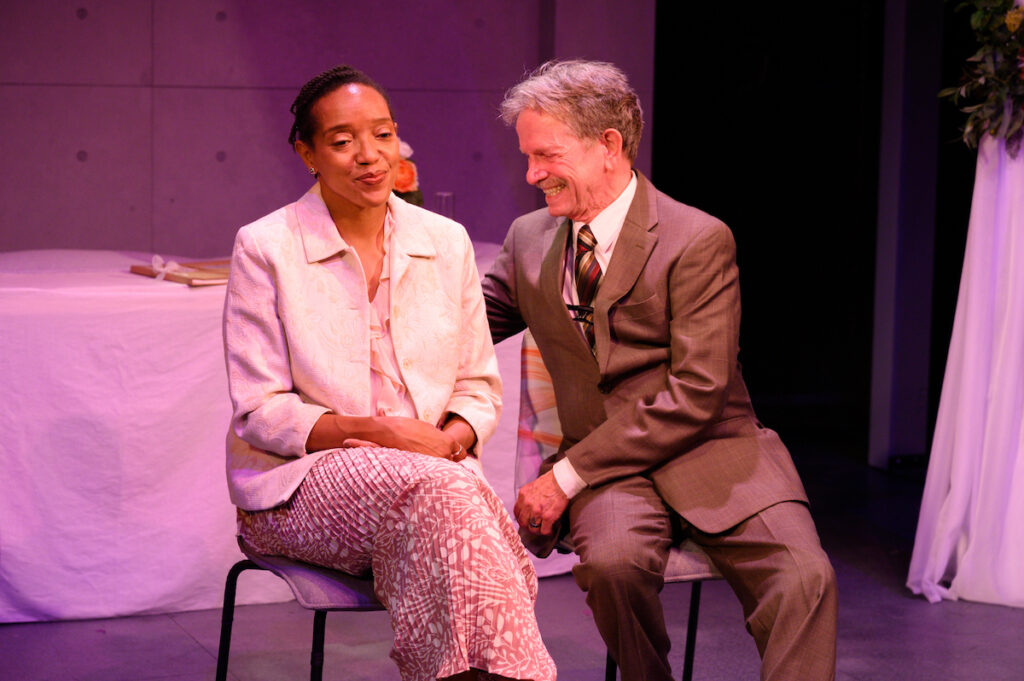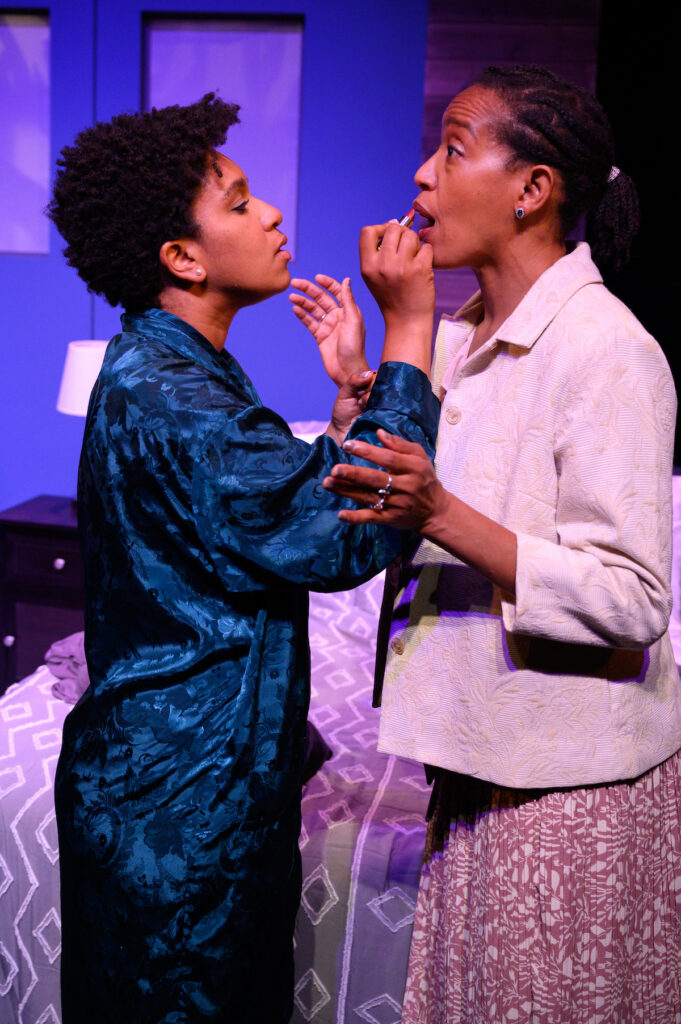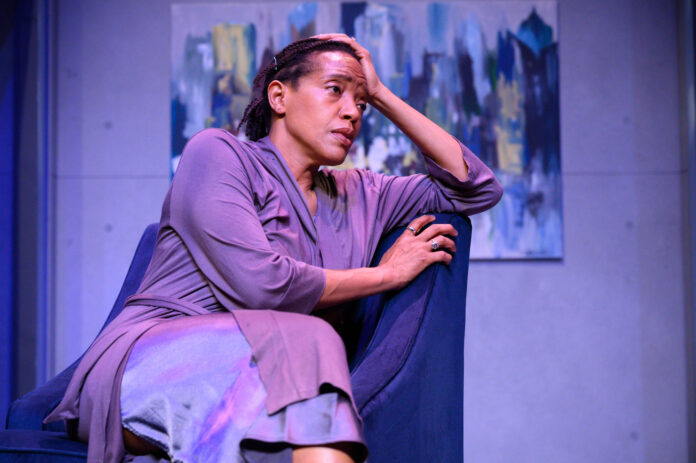For more than two years now, I’ve been grateful to wake up in smelly shirts. All my work is remote, so I don’t change clothes as often as I used to. As such, my nose more often notices when what I’m wearing hasn’t been washed (especially since I’ve been exercising a lot more these past two years). Yet, every morning that I wake up able to smell clothes, taste my breakfast, and jog without getting winded is a day for which I’m grateful. It means that it’s another day in which I don’t have COVID, which attacks those very senses.
Those two-plus years of professional COVID testing, at-home COVID testing, two doses of vaccine, and one of the booster (I’ll be the happiest person on Earth when the second booster’s approved for under-50s and all vaccines are approved for infants) are part of the reason I report on the pandemic safety of every venue I visit.
Shotgun’s vax check hasn’t changed since last I mentioned it, but—whether intentionally or accidentally—the choice to produce Adam Bock’s A Small Fire (running through June 12 at Ashby Stage, Berkeley) couldn’t be more timely. The 2012 play obviously predates the COVID pandemic, but it’s such a perfect metaphor for Long COVID that it’s scary.
We never find out what specific condition is affecting Emily Bridges, played with deep empathy by Desiree Rogers. We know that she owns and operates her Bridges Construction, where she serves as the on-site, no-bullshit boss. We know that she’s been married to John (Dixon Phillips) for so long that you eventually stop counting years. We know that she’s really not fond of Henry, the artsy unseen fiancé to Jenny (Leigh Rondon-Davis), Emily and John’s daughter. But we never find out what sudden-onset condition she has.

All we know is that one day, she loses her sense of smell, leading to a kitchen stove accident that produces the titular “small fire.” Sometime later, she loses her sight, making it all-but-impossible for her to do her on-site construction duties. Eventually, she loses her hearing, leaving her only able to “hear” others through direct physical contact.
Specified or not, the expeditious nature of Emily’s debilitation has hints of the supernatural, particularly when John’s sense seem to heighten as each of hers disappears. What’s more, her loss of sound is preceded by near-deafening cacophony of noise (via designer James Ard) and she has some rather intense dreams before and after the sense loss occurs.
Through it all, the matriarch and business-owner—who’s spent more than half her like looking after others—struggles to accept that she must now be looked after. The business is under the capable supervision of Billy (Nick Trengove), her pigeon-racing right-hand man; but her attitude is harsh on John, and she still has years of fence-mending to do with Jennifer.
This play debuted a decade ago (something only noticeable by the scripted use of a Blackberry, though those were already declassee by 2012), so it was likely meant to reflect degenerative conditions like Alzheimer’s, ALS, and the like. Having said that, the Long COVID parallels are impossible to ignore, particularly in the way Long COVID and this unnamed condition both start by eliminating the sense of smell.

Late in the play, a bonding moment between Billy and John leads to the former making a direct comparison to HIV/AIDS and the latter confessing that he wants to scream at people in public for not taking health precautions seriously (something all too familiar to those of us who actually wear our masks in public). I don’t know if Shotgun chose the play specifically because of those parallels, but it certainly gives it a resonance that otherwise may have been missing.
It’s definitely something that helps when the script occasionally stumbles the odd bit of dialogue and its loose portrayal of the passage of time. Though director Mary Ann Rodgers gets a lot out of most of her talented cast (Phillips never quite matches the energy of his castmates, sometimes seeming as if he’s in a completely different production), her scene-to-scene transitions are head-tilting in how rote they are.
Some changes work well, particularly moving walls and dressing for Malcolm Rodgers’ set. But the rest of the transitions are done in an incredibly basic way by the cast, who often go out of character. There’s no flow to them and the play often stops cold just to get the transitions out of the way.
Still, this production lives through Desiree Rogers’ performance, which never falters; and the Long COVID parallels make it an appropriately unsettling watch. If the content isn’t too triggering for you, it might be worth a trip to the Ashby Stage. Just be sure to have an N95-grade mask when you do.
A SMALL FIRE runs through June 12 at the Ashby Stage, Berkeley. Tickets and info here.






